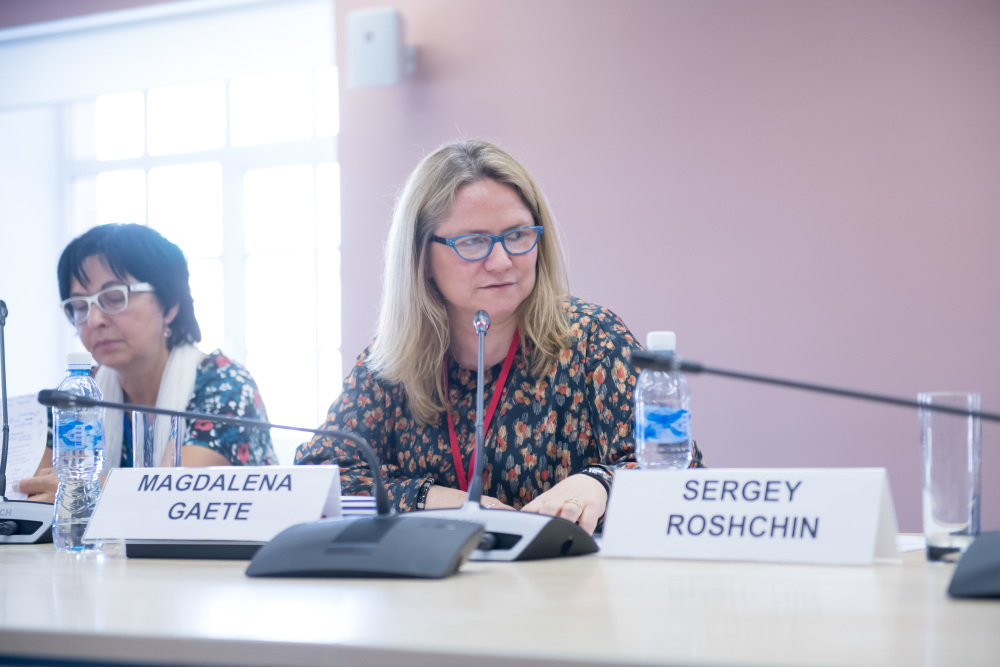Magdalena Gaete: "University Reputation Is a Perceived Quality"

HSE University – St Petersburg
Magdalena Gaete, a representative of the University of Navarra, discusses the challenges that universities face today, and what Russian universities should do to join the ranks of the world's top institutions of higher education.
What challenges do universities face in terms of reputation?
University reputation is synonymous with a university's ‘perceived quality’, which is a reflection of the public's opinion of its ‘objective quality’. The foundations of a good reputation lie in the quality of a university's education and research, as well as its contributions to society and sense of social responsibility. Universities should strive not to lose focus of its primary mission—providing high quality teaching and an excellent student experience. A challenge universities face is understanding that the condition of its reputation includes ‘tangibles’ as well as ‘intangible assets’ in the management of a university, and those ‘intangibles’ include university quality, relationships, transparency, work environment, student experience, and the understanding of the different ‘stakeholders’ of the institution. Reputation management requires a big deal of change, improvement and innovation. Hence, one of the main enemies of reputation is resistance to change—and that might be one of the problems that managers encounter when trying to innovate in their universities.
Are these challenges the same for Russian and foreign universities?
I would say that in every country they have their own challenges. For example, China has the challenge of providing education to millions of prospective students every year and not having enough universities to do so. In the UK, given the uncertainty of Brexit, universities are working on underlining the fact that they want to stay ‘global’ no matter what.
One of the challenges for Russian higher education is making the relationship between teachers and students of central focus. This would allow the institutional managers of the universities to have a reference that serves to guide the identity and mission of the University, and thus improve the reality—the objective dimension of reputation. The point of concentration should be the student and the ‘student experience’.
In this sense, I see in Russia a lack of understanding of the importance of career services centers and alumni offices. In addition, the greatest challenge is developing a focus on ‘social responsibility’, that is, making an effort to meet the demands of society, working for and with society, and changing the ‘way of being’ that permeates all activity of the university. For example, learning based on projects with social impact, research towards the solution of social problems, etc.
Are Russian universities succeeding in entering the international educational arena?
In Russia, the reputation or ‘perceived quality’ of the Russian education system is that it needs to become a ‘student-centered system’. And when it comes to internationalization, most of the focus is put on ‘internationalisation at home’.
Many Russian universities have been making strides in terms of student mobility programmes, which is a key component in international education—in particular, degree mobility for students. Hence, there is still work to be done in the area of ‘campus internationalisation’, syllabus internationalisation, innovation in teaching and joint programmes, intercultural and international competences and learning outcomes.
This year these and other vital topics will be discussed during the conference ‘Education and World Cities: New Horizons of University Reputation’ at HSE University. It will be held for the first time with support of the University of Navarra, a recognised centre on the subject of reputation.